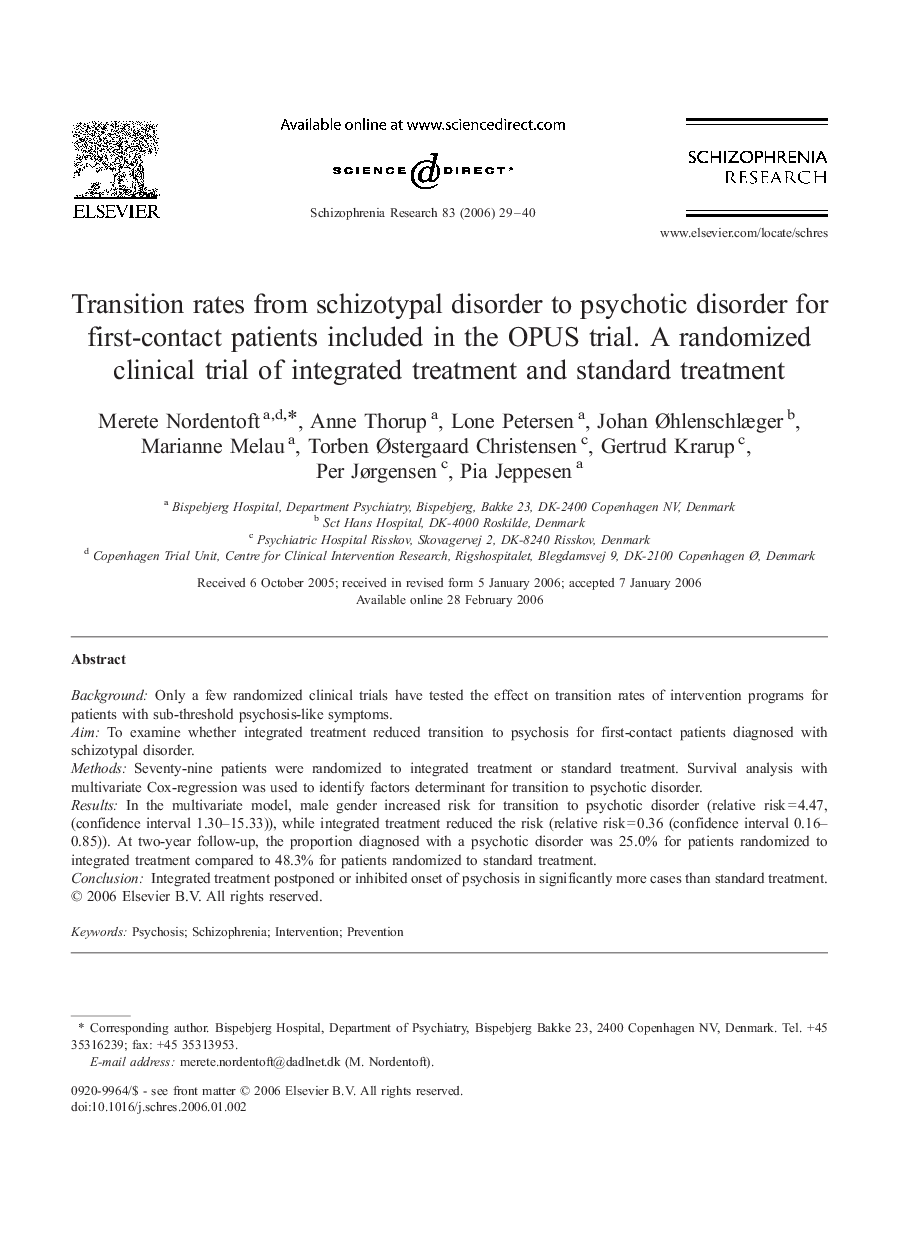| Article ID | Journal | Published Year | Pages | File Type |
|---|---|---|---|---|
| 341767 | Schizophrenia Research | 2006 | 12 Pages |
BackgroundOnly a few randomized clinical trials have tested the effect on transition rates of intervention programs for patients with sub-threshold psychosis-like symptoms.AimTo examine whether integrated treatment reduced transition to psychosis for first-contact patients diagnosed with schizotypal disorder.MethodsSeventy-nine patients were randomized to integrated treatment or standard treatment. Survival analysis with multivariate Cox-regression was used to identify factors determinant for transition to psychotic disorder.ResultsIn the multivariate model, male gender increased risk for transition to psychotic disorder (relative risk = 4.47, (confidence interval 1.30–15.33)), while integrated treatment reduced the risk (relative risk = 0.36 (confidence interval 0.16–0.85)). At two-year follow-up, the proportion diagnosed with a psychotic disorder was 25.0% for patients randomized to integrated treatment compared to 48.3% for patients randomized to standard treatment.ConclusionIntegrated treatment postponed or inhibited onset of psychosis in significantly more cases than standard treatment.
